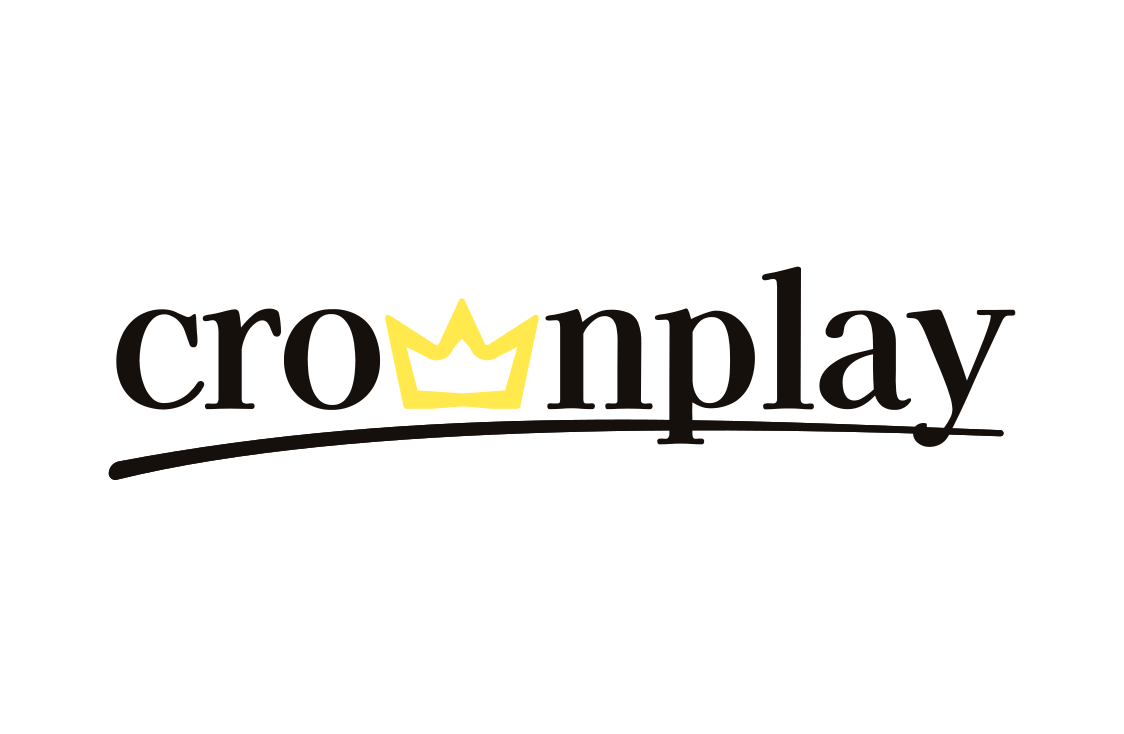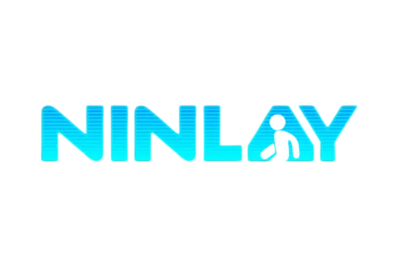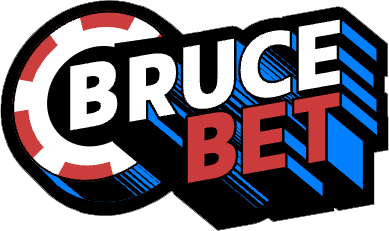Σε αυτή τη σελίδα, θα βρείτε όλες τις απαραίτητες πληροφορίες για τα νόμιμα καζίνο στο ίντερνετ, τις άδειες λειτουργίας, τις πιο αξιόπιστες επιλογές, καθώς και τους καλύτερους τρόπους πληρωμής και τις προσφορές που ξεχωρίζουν. Μάθετε ποια είναι τα κορυφαία αδειοδοτημένα διαδικτυακά καζίνο στην Ελλάδα, πώς να επιλέξετε το κατάλληλο για εσάς και τι πρέπει να γνωρίζετε για τη φορολογία, την ασφάλεια και το υπεύθυνο παιχνίδι.
Νόμιμα Διαδικτυακά Καζίνο στην Ελλάδα 2025
Νόμιμα Καζίνο στο Ίντερνετ: Οι Καλύτερες Επιλογές για το 2025
100% έως 500 EUR + 200 FS
100% έως €500+ 200 Δωρεάν Περιστροφές
100% μέχρι € 500 + 200 δωρεάν περιστροφές
200% έως 1000 EUR + 10% καθημερινή επιστροφή μετρητών
225% και 1500 € + Δωρεάν Περιστροφές και Στοιχήματα
400% έως 2200 EUR+ 350 FS
500% μπόνους καλωσορίσματος έως 8.000 $ + 400 δωρεάν περιστροφές
255% έως 1100 € + 255 FS
100% έως 300€
VRSGR
Τι Είναι τα Νόμιμα Online Casino στην Ελλάδα;
Τα νόμιμα online casino στην Ελλάδα είναι διαδικτυακές πλατφόρμες τυχερών παιχνιδιών που λειτουργούν με άδεια από την Επιτροπή Εποπτείας και Ελέγχου Παιγνίων (ΕΕΕΠ). Αυτά τα νομιμα casino online παρέχουν στους παίκτες ασφαλές περιβάλλον παιχνιδιού, προσφέροντας δημοφιλή παιχνίδια όπως φρουτάκια, ρουλέτα, μπλάκτζακ, πόκερ και ζωντανό καζίνο με πραγματικούς ντίλερ. Η αδειοδότηση εξασφαλίζει διαφάνεια και αξιοπιστία, καθώς οι πάροχοι ακολουθούν αυστηρούς κανονισμούς που διασφαλίζουν τη δικαιοσύνη των παιχνιδιών και την προστασία των παικτών.
-
Αδειοδότηση από την ΕΕΕΠ
Όλα τα νομιμα online casino στην ελλαδα διαθέτουν επίσημη άδεια, πράγμα που σημαίνει ότι πληρούν συγκεκριμένα κριτήρια ασφαλείας και διαφάνειας. -
Ασφαλείς συναλλαγές
Τα νόμιμα casino online χρησιμοποιούν τραπεζικές μεθόδους με κρυπτογράφηση και συνεργάζονται με αξιόπιστες εταιρείες πληρωμών όπως Visa, Mastercard, PayPal, Skrill και τραπεζικές μεταφορές. -
Δίκαια και πιστοποιημένα παιχνίδια
Τα παιχνίδια ελέγχονται από ανεξάρτητους οργανισμούς όπως το eCOGRA και χρησιμοποιούν αλγόριθμους RNG (Random Number Generator) για διασφάλιση τυχαίων αποτελεσμάτων. -
Προστασία παικτών και υπεύθυνο παιχνίδι
Τα νόμιμα online casino προσφέρουν εργαλεία αυτοπεριορισμού, δυνατότητα προσωρινής αποχής από το παιχνίδι και συνεργάζονται με οργανισμούς υποστήριξης όπως το ΚΕΘΕΑ ΑΛΦΑ. -
Μεγάλη ποικιλία παιχνιδιών
Οι παίκτες έχουν πρόσβαση σε χιλιάδες φρουτάκια, κλασικά επιτραπέζια παιχνίδια, καθώς και ζωντανό καζίνο με επαγγελματίες κρουπιέρηδες. -
Μπόνους και προσφορές
Οι νόμιμες πλατφόρμες προσφέρουν προσφορές καλωσορίσματος, δωρεάν περιστροφές και προγράμματα επιβράβευσης για τους παίκτες τους. -
Φορολογικά πλεονεκτήματα
Τα κέρδη στα νομιμα casino online φορολογούνται σύμφωνα με την ελληνική νομοθεσία, με συγκεκριμένες κλίμακες φορολόγησης που προστατεύουν τους παίκτες από αθέμιτες επιβαρύνσεις.
Τα νομιμα online casino στην ελλαδα προσφέρουν μια ασφαλή και αξιόπιστη εμπειρία παιχνιδιού, συνδυάζοντας τεχνολογία αιχμής, διαφάνεια και υπεύθυνη διασκέδαση.
Πλεονεκτήματα και Μειονεκτήματα των Νόμιμων Καζίνο στην Ελλάδα
Τα νόμιμα καζίνο παρέχουν ένα ασφαλές και ελεγχόμενο περιβάλλον για διαδικτυακό παιχνίδι. Η επιλογή ενός νόμιμου καζίνο στο ίντερνετ έχει σημαντικά οφέλη, αλλά υπάρχουν και ορισμένα μειονεκτήματα που πρέπει να ληφθούν υπόψη.
Pros
-
Ασφάλεια και Αξιοπιστία
-
Νόμιμες και Διαφανείς Συναλλαγές
-
Προστασία των Παικτών
-
Πρόσβαση σε Μεγάλες Προσφορές και Μπόνους
-
Υποστήριξη στα Ελληνικά
Cons
-
Ταυτοποίηση Λογαριασμού
-
Όρια στις Προσφορές
-
Περιορισμένες Μέθοδοι Πληρωμής σε Ορισμένες Περιπτώσεις
Τα νομιμα καζινο ελλαδα προσφέρουν ένα ελεγχόμενο και ασφαλές περιβάλλον για διαδικτυακό παιχνίδι, με διαφανείς συναλλαγές και προστασία των παικτών. Παρότι υπάρχουν ορισμένοι περιορισμοί, η επιλογή μιας αδειοδοτημένης πλατφόρμας εξασφαλίζει μια υπεύθυνη και αξιόπιστη εμπειρία παιχνιδιού.
Ποιος Ρυθμίζει τα Νόμιμα Καζίνο στο Ίντερνετ στην Ελλάδα;
Τα νομιμα καζινο ιντερνετ στην Ελλάδα λειτουργούν υπό αυστηρούς κανονισμούς που διασφαλίζουν τη νομιμότητα, την ασφάλεια και τη διαφάνεια του παιχνιδιού. Η ρύθμιση των πλατφορμών αυτών γίνεται από την Επιτροπή Εποπτείας και Ελέγχου Παιγνίων (ΕΕΕΠ), τον κρατικό φορέα που είναι υπεύθυνος για την αδειοδότηση και την εποπτεία των νόμιμων καζίνο στη χώρα.
Ο Ρόλος της ΕΕΕΠ στα Νόμιμα Καζίνο στην Ελλάδα
Η ΕΕΕΠ είναι η ρυθμιστική αρχή που ελέγχει τα νομιμα καζινο στην ελλαδα, διασφαλίζοντας ότι οι πάροχοι ακολουθούν τους κανόνες που έχουν θεσπιστεί από το ελληνικό κράτος. Οι βασικές αρμοδιότητες της περιλαμβάνουν:
Όλα τα νομιμα καζινο ιντερνετ πρέπει να διαθέτουν επίσημη άδεια από την ΕΕΕΠ, η οποία ελέγχει την οικονομική σταθερότητα, την αξιοπιστία και τη συμμόρφωση κάθε παρόχου με τους νόμους.
Τα παιχνίδια που προσφέρονται στα νομιμα καζίνο ελέγχονται ώστε να λειτουργούν με γεννήτριες τυχαίων αριθμών (RNG) και να μην υπάρχει καμία παρέμβαση που να αλλοιώνει τις πιθανότητες νίκης.
Οι πληρωμές και οι αναλήψεις ελέγχονται ώστε να πραγματοποιούνται με ασφαλή τρόπο, προστατεύοντας τα προσωπικά δεδομένα και τα κεφάλαια των παικτών.
Τα νομιμα καζινο στην ελλαδα είναι υποχρεωμένα να παρέχουν εργαλεία αυτοπεριορισμού και να συμμορφώνονται με κανόνες υπεύθυνου παιχνιδιού, αποτρέποντας τον εθισμό στον τζόγο.
Αν κάποιο διαδικτυακό καζίνο δεν τηρεί τις προδιαγραφές, η ΕΕΕΠ έχει το δικαίωμα να επιβάλει πρόστιμα, να ανακαλέσει την άδεια ή να μπλοκάρει την πρόσβαση στην πλατφόρμα μέσω της Black List (μαύρη λίστα).
Τα νομιμα καζινο ιντερνετ προσφέρουν μια ρυθμιζόμενη και ασφαλή εμπειρία παιχνιδιού, με εγγυήσεις για δίκαιες συνθήκες και προστασία των παικτών. Η αυστηρή εποπτεία από την ΕΕΕΠ διασφαλίζει ότι οι πάροχοι τηρούν όλους τους κανόνες και τις προδιαγραφές, αποτρέποντας παράνομες ή αθέμιτες πρακτικές.
Τρόποι Πληρωμής στα Νόμιμα Online Casino στην Ελλάδα
Τα νομιμα διαδικτυακα καζινο προσφέρουν πολλές επιλογές πληρωμής, επιτρέποντας στους παίκτες να κάνουν καταθέσεις και αναλήψεις με ασφάλεια και ταχύτητα. Οι μέθοδοι πληρωμής στα νομιμα καζινο online πρέπει να πληρούν αυστηρά πρότυπα ασφαλείας, να είναι αξιόπιστες και να προσφέρουν ευκολία στις συναλλαγές. Κάθε τρόπος πληρωμής έχει διαφορετικούς χρόνους επεξεργασίας, όρια συναλλαγών και τυχόν χρεώσεις. Παρακάτω παρουσιάζονται οι πιο διαδεδομένες μέθοδοι πληρωμής που υποστηρίζουν τα online νομιμα casino στην Ελλάδα.
Διαθέσιμες Μέθοδοι Πληρωμής στα Νόμιμα Διαδικτυακά Καζίνο
| Μέθοδος Πληρωμής | Χρόνος Κατάθεσης | Χρόνος Ανάληψης | Χρεώσεις | Διαθεσιμότητα στα Νόμιμα Καζίνο |
|---|---|---|---|---|
| Τραπεζική Μεταφορά | Άμεση | 1-5 εργάσιμες ημέρες | Ενδέχεται να υπάρχουν | Ναι |
| Πιστωτικές/Χρεωστικές Κάρτες (Visa, Mastercard) | Άμεση | 1-3 εργάσιμες ημέρες | Συνήθως δωρεάν | Ναι |
| Skrill | Άμεση | 24-48 ώρες | Μικρή προμήθεια σε αναλήψεις | Ναι |
| Neteller | Άμεση | 24-48 ώρες | Μικρή προμήθεια σε αναλήψεις | Ναι |
| Paysafecard | Άμεση | Δεν υποστηρίζει αναλήψεις | Ενδέχεται να υπάρχουν | Ναι |
| PayPal | Άμεση | 24-48 ώρες | Συνήθως δωρεάν | Διατίθεται σε επιλεγμένα καζίνο |
| Apple Pay / Google Pay | Άμεση | Δεν υποστηρίζει αναλήψεις | Συνήθως δωρεάν | Σε ορισμένα καζίνο |
| Bitcoin & Κρυπτονομίσματα | Άμεση | 1-2 ώρες | Εξαρτάται από την πλατφόρμα | Διατίθεται σε λίγα νόμιμα καζίνο |
Τα νομιμα διαδικτυακα καζινο στην Ελλάδα προσφέρουν αρκετές επιλογές πληρωμής, καλύπτοντας διαφορετικές ανάγκες παικτών. Οι ηλεκτρονικές πληρωμές είναι οι πιο γρήγορες, ενώ οι τραπεζικές μεταφορές είναι προτιμότερες για μεγάλες αναλήψεις. Η επιλογή της κατάλληλης μεθόδου εξαρτάται από τον χρόνο αναμονής, τις χρεώσεις και τις προσωπικές προτιμήσεις.
Πώς να Επιλέξετε το Κατάλληλο Νόμιμο Online Casino
Η επιλογή ενός από τα νομιμα online casino στην ελλαδα απαιτεί προσοχή σε βασικά κριτήρια που εξασφαλίζουν ασφαλές και δίκαιο παιχνίδι. Τα νόμιμα καζίνο λειτουργούν με άδεια από την ΕΕΕΠ, προσφέροντας προστασία συναλλαγών, διαφάνεια στους όρους χρήσης και μεγάλη ποικιλία παιχνιδιών. Για να επιλέξετε το σωστό νομιμα casino online, εστιάστε στα παρακάτω σημεία:
Τα νόμιμα καζίνο στην Ελλάδα πρέπει να διαθέτουν άδεια από την Επιτροπή Εποπτείας και Ελέγχου Παιγνίων (ΕΕΕΠ). Αυτό διασφαλίζει ότι η πλατφόρμα λειτουργεί νόμιμα, προσφέρει δίκαια παιχνίδια και προστατεύει τα προσωπικά δεδομένα των παικτών.
- Ελέγξτε αν το καζίνο διαθέτει ενεργή άδεια από την ΕΕΕΠ.
- Βεβαιωθείτε ότι χρησιμοποιεί σύγχρονα πρωτόκολλα ασφαλείας για τις συναλλαγές.
- Διαβάστε τους όρους και τις προϋποθέσεις πριν εγγραφείτε.
Η επιλογή του κατάλληλου νομιμα casino online εξαρτάται από τις διαθέσιμες μεθόδους πληρωμής και την ταχύτητα αναλήψεων.
- Τα πιο αξιόπιστα καζίνο υποστηρίζουν Visa, Mastercard, Skrill, Neteller, PayPal και τραπεζικές μεταφορές.
- Οι αναλήψεις μέσω ηλεκτρονικών πορτοφολιών είναι οι πιο γρήγορες (εντός 24 ωρών), ενώ οι τραπεζικές μεταφορές μπορεί να διαρκέσουν έως 5 εργάσιμες ημέρες.
- Ελέγξτε αν υπάρχουν χρεώσεις στις συναλλαγές.
Τα νομιμα online casino στην ελλαδα πρέπει να διαθέτουν μεγάλη γκάμα παιχνιδιών, συνεργαζόμενα με κορυφαίους παρόχους λογισμικού.
- Τα καλύτερα καζίνο προσφέρουν φρουτάκια, επιτραπέζια παιχνίδια, ζωντανό καζίνο και προοδευτικά τζάκποτ.
- Οι αξιόπιστοι πάροχοι λογισμικού περιλαμβάνουν NetEnt, Microgaming, Evolution Gaming και Pragmatic Play.
- Ελέγξτε αν υπάρχουν demo εκδόσεις για δωρεάν δοκιμή των παιχνιδιών.
Τα νόμιμα καζίνο προσφέρουν μπόνους καλωσορίσματος, δωρεάν περιστροφές και προγράμματα επιβράβευσης, αλλά οι όροι πρέπει να είναι ξεκάθαροι.
- Διαβάστε τις απαιτήσεις τζιραρίσματος πριν αποδεχτείτε μια προσφορά.
- Βεβαιωθείτε ότι τα μπόνους ισχύουν για τα παιχνίδια που σας ενδιαφέρουν.
- Ελέγξτε αν υπάρχουν χρονικά όρια για τη χρήση των προσφορών.
Η επιλογή του κατάλληλου νομιμα casino online εξαρτάται από την ασφάλεια, τη διαθεσιμότητα των πληρωμών, την ποικιλία παιχνιδιών και τις προσφορές. Ένα αξιόπιστο καζίνο συνδυάζει όλα αυτά τα στοιχεία, προσφέροντας μια ασφαλή και διασκεδαστική εμπειρία παιχνιδιού.
Τα Καλύτερα Παιχνίδια που Θα Βρείτε στα Νόμιμα Καζίνο
Τα νομιμα online καζινο στην ελλαδα προσφέρουν μεγάλη ποικιλία παιχνιδιών για όλους τους παίκτες. Οι επιλογές περιλαμβάνουν φρουτάκια, επιτραπέζια παιχνίδια, ζωντανό καζίνο και προοδευτικά τζάκποτ, όλα από κορυφαίους παρόχους λογισμικού. Η επιλογή παιχνιδιού εξαρτάται από το στυλ του κάθε παίκτη. Κάποιοι προτιμούν φρουτάκια με υψηλό RTP, ενώ άλλοι επιλέγουν τη στρατηγική στα παιχνίδια τραπεζιού. Ο παρακάτω πίνακας παρουσιάζει τις δημοφιλέστερες κατηγορίες παιχνιδιών στα καλυτερα νομιμα καζινο και τα χαρακτηριστικά τους.
Τα Κορυφαία Παιχνίδια στα Νόμιμα Καζίνο στο Ίντερνετ
| Κατηγορία Παιχνιδιών | Περιγραφή | Δημοφιλή Παιχνίδια |
|---|---|---|
| Φρουτάκια (Slots) | Διαθέτουν πολλαπλά θέματα, μπόνους γύρους και προοδευτικά τζάκποτ. | Starburst, Book of Dead, Gonzo’s Quest |
| Ρουλέτα | Διαθέσιμη σε ευρωπαϊκή, αμερικανική και γαλλική έκδοση. | European Roulette, Lightning Roulette |
| Μπλάκτζακ | Κλασικό παιχνίδι στρατηγικής με χαμηλό πλεονέκτημα καζίνο. | Classic Blackjack, Blackjack VIP |
| Πόκερ | Δημοφιλές παιχνίδι δεξιοτήτων με πολλές παραλλαγές. | Texas Hold’em, Casino Hold’em |
| Ζωντανό Καζίνο | Πραγματικοί ντίλερ σε ζωντανές μεταδόσεις. | Live Baccarat, Live Roulette, Crazy Time |
| Προοδευτικά Τζάκποτ | Φρουτάκια με τεράστια χρηματικά έπαθλα που αυξάνονται διαρκώς. | Mega Moolah, Age of the Gods |
Τα καλυτερα νομιμα καζινο προσφέρουν μεγάλη ποικιλία παιχνιδιών, από κλασικά φρουτάκια μέχρι παιχνίδια στρατηγικής και ζωντανό καζίνο. Η επιλογή εξαρτάται από το στυλ του κάθε παίκτη και τις προτιμήσεις του. Οι πλατφόρμες που διαθέτουν κορυφαίους παρόχους λογισμικού εξασφαλίζουν ποιοτική εμπειρία παιχνιδιού με δίκαιες αποδόσεις.
Μπόνους και Προσφορές στα Νόμιμα Online Casino στην Ελλάδα
Τα νομιμα καζινο ιντερνετ στην Ελλάδα προσφέρουν διάφορες προσφορές για νέους και υπάρχοντες παίκτες. Οι προσφορές αυτές δίνουν επιπλέον κεφάλαια ή δωρεάν περιστροφές, αλλά συνοδεύονται από συγκεκριμένους όρους που πρέπει να τηρούνται. Τα νομιμα διαδικτυακα καζινο διαμορφώνουν τις προωθητικές ενέργειες σύμφωνα με τους ελληνικούς κανονισμούς, εξασφαλίζοντας δίκαιους όρους για τους παίκτες. Οι πιο δημοφιλείς τύποι μπόνους περιλαμβάνουν προσφορές εγγραφής, επιστροφή χρημάτων και προγράμματα επιβράβευσης.
Τύποι Μπόνους στα Νόμιμα Καζίνο

Τα περισσότερα νομιμα casino προσφέρουν μπόνους εγγραφής στους νέους παίκτες. Συνήθως, περιλαμβάνει ποσοστιαία αντιστοίχιση της πρώτης κατάθεσης (π.χ. 100% έως 500€). Κάποιες πλατφόρμες δίνουν και δωρεάν περιστροφές σε συγκεκριμένα φρουτάκια.

Ορισμένα νομιμα καζίνο παρέχουν μπόνους χωρίς την υποχρέωση κατάθεσης. Πρόκειται για ένα μικρό ποσό (π.χ. 5€-10€) ή δωρεάν περιστροφές, που επιτρέπουν στους παίκτες να δοκιμάσουν παιχνίδια χωρίς να ρισκάρουν χρήματα.

Οι πλατφόρμες που λειτουργούν νόμιμα στην Ελλάδα προσφέρουν επιστροφή ποσοστού των χαμένων χρημάτων σε συγκεκριμένες περιόδους (π.χ. 10% εβδομαδιαία επιστροφή). Αυτό το μπόνους μειώνει τον κίνδυνο απώλειας μεγάλων ποσών.

Τα νομιμα διαδικτυακα καζινο διαθέτουν προγράμματα επιβράβευσης που περιλαμβάνουν reload bonuses, δωρεάν περιστροφές και επιπλέον προνόμια. Οι VIP παίκτες λαμβάνουν ειδικές ανταμοιβές, όπως υψηλότερα όρια ανάληψης και προσωπικούς διαχειριστές λογαριασμού.

Πολλά νομιμα καζίνο προσφέρουν μπόνους ειδικά για το live casino, όπως δωρεάν στοιχήματα στη ρουλέτα ή το μπλάκτζακ. Αυτές οι προσφορές βοηθούν τους παίκτες να αυξήσουν τον χρόνο παιχνιδιού τους σε ζωντανά τραπέζια.

Κατά τη διάρκεια εορτών ή μεγάλων διοργανώσεων, τα νομιμα καζινο ιντερνετ λανσάρουν περιορισμένες προσφορές, όπως τουρνουά φρουτάκια, επιπλέον μπόνους κατάθεσης και διαγωνισμούς με έπαθλα.
Τα νομιμα διαδικτυακα καζινο προσφέρουν ποικιλία μπόνους που βελτιώνουν την εμπειρία των παικτών. Η σωστή κατανόηση των όρων και προϋποθέσεων κάθε προσφοράς βοηθά στην καλύτερη αξιοποίηση των επιβραβεύσεων. Οι παίκτες πρέπει να επιλέγουν πλατφόρμες που προσφέρουν διαφανείς και δίκαιες προωθητικές ενέργειες.
Φορολογία Κερδών από Νόμιμα Online Καζίνο στην Ελλάδα
Τα κέρδη που προέρχονται από online νομιμα casino στην Ελλάδα υπόκεινται σε φορολογία σύμφωνα με τη νομοθεσία της χώρας. Οι παίκτες πρέπει να γνωρίζουν ποια είναι τα όρια αφορολόγητων κερδών, πώς υπολογίζεται ο φόρος και πότε εφαρμόζεται. Η φορολογία στα νόμιμα kazino καθορίζεται από την Επιτροπή Εποπτείας και Ελέγχου Παιγνίων (ΕΕΕΠ) και αφορά όλα τα κέρδη που προκύπτουν από στοιχήματα, φρουτάκια, ρουλέτα και άλλα τυχερά παιχνίδια στα casino νόμιμα στην Ελλάδα.
Φορολογικές Κλίμακες για τα Κέρδη στα Νόμιμα Καζίνο
| Κέρδη ανά συνεδρία | Φορολογικός Συντελεστής |
|---|---|
| Έως 100€ | Αφορολόγητα |
| 100,01€ – 500€ | 15% φόρος |
| Πάνω από 500€ | 20% φόρος |
Τι Πρέπει να Γνωρίζουν οι Παίκτες
- Τι θεωρείται “κερδισμένη συνεδρία”. Η συνεδρία ξεκινά όταν ο παίκτης τοποθετεί το πρώτο στοίχημα και ολοκληρώνεται όταν κάνει ανάληψη ή αποσυνδέεται από το νόμιμα kazino. Ο φόρος υπολογίζεται επί των καθαρών κερδών μετά την αφαίρεση των αρχικών στοιχημάτων.
- Πώς πληρώνεται ο φόρος. Ο φόρος παρακρατείται αυτόματα από το casino νόμιμα και ο παίκτης λαμβάνει τα καθαρά κέρδη του. Δεν απαιτείται ξεχωριστή φορολογική δήλωση για τα κέρδη από τα online νομιμα casino, καθώς η παρακράτηση γίνεται από την πλατφόρμα.
- Φορολογία σε μεγάλες αναλήψεις. Οι παίκτες που κερδίζουν μεγάλα ποσά (άνω των 500€ σε μία συνεδρία) υπόκεινται στον ανώτατο φορολογικό συντελεστή (20%). Σε περιπτώσεις μεγάλων κερδών, οι αναλήψεις μπορεί να γίνουν τμηματικά για διαχείριση της φορολογικής επιβάρυνσης.
- Διαφορές φορολογίας μεταξύ παιχνιδιών. Δεν υπάρχει διαφοροποίηση στη φορολόγηση μεταξύ φρουτάκια, live casino ή επιτραπέζια παιχνίδια. Τα ίδια ποσοστά ισχύουν ανεξάρτητα από τον τύπο του παιχνιδιού στα νόμιμα kazino.
- Δήλωση κερδών και υποχρεώσεις παικτών. Τα κέρδη από τα casino νόμιμα δηλώνονται αυτόματα και δεν απαιτείται πρόσθετη ενέργεια από τον παίκτη. Δεν υπάρχει επιπλέον φορολογική επιβάρυνση κατά την κατάθεση ή την ανάληψη κεφαλαίων.
Η φορολογία στα online νομιμα casino εφαρμόζεται μέσω αυτόματης παρακράτησης, γεγονός που διευκολύνει τους παίκτες στην παρακολούθηση των κερδών τους. Οι κλίμακες φορολόγησης είναι σαφείς και αφορούν τα καθαρά κέρδη ανά συνεδρία. Οι παίκτες που επιθυμούν να μεγιστοποιήσουν τα κέρδη τους πρέπει να είναι ενήμεροι για τα όρια αφορολόγητων ποσών και τις σχετικές κρατήσεις.
Live Casino: Η Απόλυτη Εμπειρία Παιχνιδιού στα Νόμιμα Καζίνο
Τα νόμιμα online καζίνο live προσφέρουν μια ρεαλιστική εμπειρία παιχνιδιού, φέρνοντας την ατμόσφαιρα των πραγματικών καζίνο απευθείας στις οθόνες των παικτών. Με τη χρήση ζωντανής μετάδοσης υψηλής ανάλυσης, επαγγελματίες κρουπιέρηδες και αλληλεπίδραση σε πραγματικό χρόνο, το live casino αποτελεί κορυφαία επιλογή στα νόμιμα cazino. Η τεχνολογία streaming και η συνεργασία με κορυφαίους παρόχους, όπως Evolution Gaming, Playtech και Pragmatic Play, διασφαλίζουν ποιοτικό gameplay και αξιόπιστη λειτουργία. Οι παίκτες μπορούν να συμμετέχουν σε ζωντανά τραπέζια ρουλέτας, μπλάκτζακ, μπακαρά και πόκερ, καθώς και σε πρωτότυπα game shows.
Δημοφιλή Παιχνίδια Live Casino στα Νόμιμα Cazino
| Παιχνίδι | Περιγραφή | Κορυφαίοι Πάροχοι |
|---|---|---|
| Live Ρουλέτα | Διαθέσιμες εκδόσεις Ευρωπαϊκή, Αμερικανική, Lightning Roulette με πολλαπλασιαστές κερδών. | Evolution Gaming, Playtech, Pragmatic Play |
| Live Μπλάκτζακ | Πολλαπλές παραλλαγές όπως Free Bet Blackjack, Infinite Blackjack και VIP τραπέζια. | Evolution Gaming, Playtech, Pragmatic Play |
| Live Baccarat | Punto Banco, Speed Baccarat και No Commission Baccarat με side bets και μπόνους πληρωμές. | Evolution Gaming, Ezugi, Playtech |
| Live Poker | Texas Hold’em, Three Card Poker, Caribbean Stud με πραγματικούς ντίλερ και προοδευτικά jackpots. | Evolution Gaming, Playtech |
| Game Shows | Διαδραστικά παιχνίδια όπως Crazy Time, Monopoly Live, Dream Catcher και Mega Ball. | Evolution Gaming, Pragmatic Play |
Τα νόμιμα online καζίνο live προσφέρουν μεγάλη ποικιλία παιχνιδιών, καλύπτοντας τις ανάγκες κάθε παίκτη, από κλασικά τραπέζια μέχρι καινούργια game shows με εντυπωσιακά χαρακτηριστικά.
Συχνές Ερωτήσεις για το Live Casino στα Νόμιμα Cazino
Είναι ασφαλές να παίζω σε live casino στα νόμιμα online καζίνο live;
Ναι, τα νόμιμα καζίνο Ελλάδα που λειτουργούν με άδεια από την ΕΕΕΠ διασφαλίζουν δίκαιες συνθήκες παιχνιδιού, κρυπτογραφημένες συναλλαγές και αξιόπιστους παρόχους λογισμικού.
Μπορώ να παίξω live casino από το κινητό μου;
Ναι, τα νομιμα casino Ελλαδα διαθέτουν συμβατές εκδόσεις για κινητά και tablets, επιτρέποντας στους παίκτες να απολαμβάνουν live παιχνίδια μέσω browser ή εφαρμογών.
Πώς λειτουργούν τα game shows στο live casino;
Τα game shows είναι διαδραστικά παιχνίδια που συνδυάζουν τύχη και στρατηγική, όπως το Crazy Time και το Monopoly Live. Οι παίκτες στοιχηματίζουν σε πολλαπλές επιλογές και μπορούν να κερδίσουν υψηλά ποσά με ειδικούς γύρους μπόνους.
Υπάρχουν μπόνους για το live casino;
Ναι, πολλά νόμιμα cazino προσφέρουν ειδικές προσφορές για live casino, όπως cashback, μπόνους κατάθεσης και δωρεάν στοιχήματα σε συγκεκριμένα παιχνίδια.
Ποια είναι τα ελάχιστα και μέγιστα πονταρίσματα στα live τραπέζια;
Τα όρια πονταρισμάτων διαφέρουν ανάλογα με το παιχνίδι και την πλατφόρμα. Σε κάποια τραπέζια, τα ελάχιστα πονταρίσματα ξεκινούν από €0,50, ενώ τα VIP τραπέζια επιτρέπουν πονταρίσματα έως και €10.000 ή περισσότερο.
















